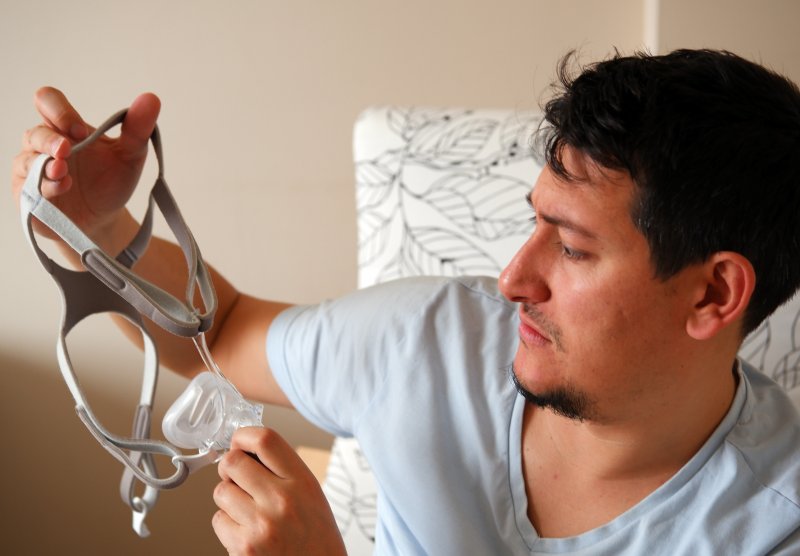
The most common form of sleep apnea treatment is continuous positive airway pressure or CPAP for short. These devices come in various forms, but they all include some type of mask (nasal or face), tubing, and bulky machinery. Although it is effective for some patients, others struggle to get adequate rest for various reasons. If you think your CPAP isn’t cutting it, read on to discover what signs to look for and how you can find an alternative that works.
How Can You Tell Your CPAP Isn’t Working Out?
You probably had high hopes when you initially received your CPAP device; however, over time, it may not be delivering what you set out to achieve – better rest. Here are a few ways you can tell that this type of treatment may not be the right option for you:
- You Continue to Snore or Experience Episodes of Apnea. When wearing your CPAP, snoring should cease. The pressurized airflow should keep your airway open, keeping any soft tissues from falling back and causing vibrations and/or a blockage. It’s possible there could be a leak or that you are not wearing it properly, but if these are not the issue, it may be time to seek an alternative solution.
- You Notice No Change in How You Feel. Sleep apnea treatment is designed to improve your overall well-being. Chronic fatigue should be replaced with quality rest and more energy throughout the day. However, if you notice these symptoms do not improve, your CPAP may not be offering the best method of care.
- You Are Unable to Get Comfortable. Many patients complain of how uncomfortable it is to wear their CPAP because of the tube and mask that are required. While normal at first, this should ease up over time as you become more used to it. If the problems (i.e., dry mouth, eye dryness, nosebleeds, upper respiratory infections, etc.) you experience do not dissipate, you can ask your sleep dentist about ways to minimize these effects or ask about switching to another form of treatment.
What Alternatives Are Available?
When seeking an alternative to CPAP therapy, your sleep dentist will discuss the various options they provide that are also proven effective. Although it may be the most popular method, it’s not right for everyone, which is why additional solutions are necessary to improve sleep apnea symptoms. These include:
- Oral Appliance Therapy (OAT): Instead of bulky machinery, OAT consists of a custom-made oral appliance that is crafted to fit comfortably inside your mouth. When worn correctly, your device will shift your jaw forward slightly so that it begins to rest in a new position, and your airway will remain open while you are asleep. This prevents any oral tissues from collapsing onto the throat and creating an obstruction.
- Medication: Depending on your condition and symptoms, prescribed medication may be the best option to help you get the sleep you need. This is often beneficial if you are living with a mental health disorder (i.e., depression, anxiety) or experiencing weight gain.
- Health & Wellness Coaching: If your sleep is impacted by life changes that are impacting your emotional, mental, and physical health, speaking with a nurse practitioner can be helpful. They may suggest ways to alter your lifestyle habits and incorporate regular exercise as well as take prescribed medication to help you get the rest you need.
Finding the right treatment method to address your sleep apnea is essential if you want to avoid more serious health problems in the future, so don’t wait any longer. Talk to your sleep dentist about your CPAP intolerance today.
About the Practice
Our team at Star Sleep & Wellness in McKinney understands that each patient has unique needs, which means there cannot be a one-size-fits-all method of treatment. Although our sleep experts offer CPAP therapy as a form of care, we recognize that other solutions must also be available for those who do not achieve successful results from this device. This is why we also offer oral appliance therapy, medication, health and wellness coaching, and more. If you are CPAP intolerant and need help to alleviate your symptoms, contact us to schedule an appointment.
